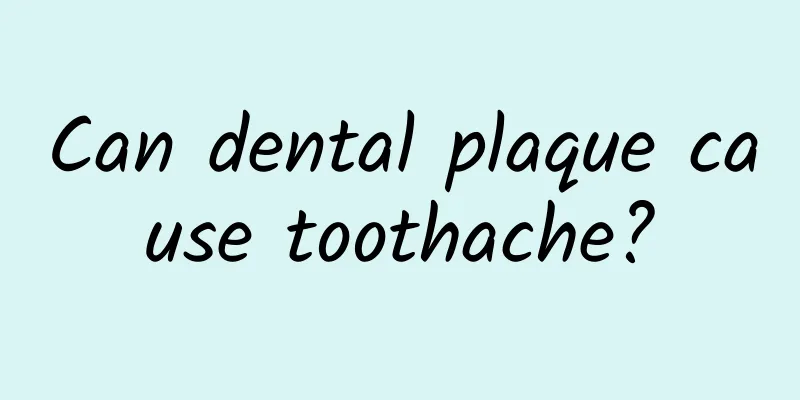Can dental plaque cause toothache?

|
In life, many people do not pay attention to oral hygiene and dental care. Some people even cannot brush their teeth on time. This will cause some problems with dental health in the long run. A common phenomenon is the formation of tartar on the surface of teeth. Tartar can cause redness, swelling, inflammation and even erosion of the gums. If you want to avoid tartar on your teeth, you must keep your teeth and mouth clean in your daily life. Can dental plaque cause toothache? When there is a lot of dental tartar, a piece of it may occasionally break off when eating or brushing your teeth. People who don’t know often think it is a cracked tooth. Since dental tartar is mostly deposited at the neck of the teeth, if it is not removed, it will stimulate the gum tissue over a long period of time and cause a series of gingivitis symptoms such as edema, congestion, gingival erosion, and easy bleeding of the gums. Some people wake up in the morning with a mouth full of bloodshot, 99% of which is caused by dental tartar. If it continues to develop, it may cause pus overflow from the periodontal tissue, bad breath, destruction and absorption of the alveolar bone, and even loose teeth. Causes of dental calculus 1. Dental tartar is formed due to poor oral hygiene. Under the action of bacteria, calcium and phosphorus deposits are formed. It includes deposits of oral epithelium, bacteria, mucin in saliva, and mineral salts in saliva. It is mainly calcium phosphate, followed by magnesium phosphate and calcium carbonate, with organic matter accounting for a small part. This calcium and phosphorus deposition is slow and can be removed at any time if you brush your teeth frequently. Otherwise, it will accumulate and become thicker. In addition, for some reason, people have the habit of chewing on one side, because the teeth on the unused side lose the friction of food, more tartar may be deposited. 2. The harm of tartar to the human body after its formation depends on the body's reactivity and repair ability to tartar stimulation. Therefore, some patients show gingival atrophy due to the pressure of tartar, while others show inflammation and hyperplasia of the gums after stimulation. In severe cases, the destruction of periodontal tissue leads to periodontal disease, with changes such as gingival bleeding, bad breath, periodontal pus, loose teeth, etc. Ask your doctor to remove the tartar and apply some iodine glycerin or other drugs locally to achieve satisfactory results. 3. Dental calculus, also known as dental plaque, is the calcified and partially calcified substance attached to the surface of teeth. Its components include: inorganic matter (calcium phosphate, magnesium phosphate, calcium carbonate), organic matter (protein, fat, water, microorganisms, etc.), and trace elements (sodium, zinc, si, etc.). More than 2/3 of the inorganic components are in crystalline form, such as hydroxyapatite. |
<<: What is fibrocystic breast disease
>>: Can I eat beef if I have a toothache?
Recommend
Black stool in late pregnancy
If our stool appears black, it means there is som...
The treatment of primary and secondary pneumothorax is very different
The accumulation of air in the pleural cavity is ...
How many days does it take for baby's urticaria to heal?
The baby's constitution is born weaker becaus...
What are the effects of leeches?
Leeches are a type of insect called leeches. Leec...
How to effectively remove chloasma?
As the female friends grow older, various skin pr...
What are the symptoms of depression? Five major symptoms of depression
As people's work pressure continues to increa...
Taboos before getting a face-lift injection
Face-slimming injections are a relatively common ...
Burn scars require proper care. How to give your skin new life?
Scars are usually formed at the wound after traum...
What is intestinal infarction?
The disease of intestinal infarction is mainly ca...
How to restore bladder urination function after rectal cancer surgery
After rectal cancer surgery, patients often exper...
What should I do if my 12-year-old child has toothache?
Toothache is a common phenomenon in life. It is g...
What to do if the can lid cannot be opened
In our lives, many people like to eat canned food...
What causes anal itching after defecation?
Many people have experienced anal itching after d...
What causes numbness and pain in hands?
If you maintain a posture for a long time, your h...
Digestive tract diseases after the tsunami
Tsunami is a relatively serious natural disaster....









